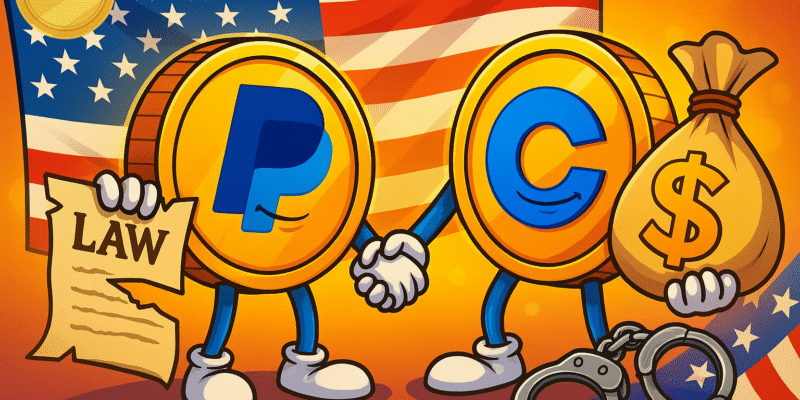In what many are calling a clever but controversial workaround to the newly signed GENIUS Act, fintech giants PayPal and Coinbase have found a way to offer incentives on stablecoin holdings without technically breaking the law
The GENIUS Act, short for Guiding and Establishing National Innovation for U.S. Stablecoins was designed to tighten federal oversight of stablecoins, the digital assets pegged to traditional currencies like the U.S. dollar. A key provision in the legislation bans stablecoin issuers from offering interest or yield to holders, It was a move aimed at tightening regulation in a space that has, until recently, thrived on blurred lines between banking and digital assets. But as it turns out, where there’s a will, there’s a workaround.
In its Q2 2025 earnings call, PayPal announced that users holding its stablecoin, PYUSD, on PayPal or Venmo can now “earn rewards” not interest, rewards. It’s a small change in terminology, but one with big implications. Because PYUSD is technically issued by Paxos, a third-party regulated provider, PayPal is not considered the issuer under the law, allowing it to structure what is essentially a yield program without triggering regulatory penalties.
Coinbase is offering a similar benefit. Holders of USDC, one of the most widely used dollar-backed stablecoins, can earn up to 4.1% annually simply by keeping their tokens in their Coinbase wallet. According to Coinbase CEO Brian Armstrong, the program doesn’t violate any rules because the exchange isn’t issuing USDC, Circle is and the returns are framed as “rewards” for customers rather than yield. It’s a delicate distinction, one that some in the fintech industry are openly questioning. Analyst Alex Johnson criticized the model, comparing it to legacy banking loopholes. “Imagine if small banks were banned from offering interest,” he said, “but then partnered with fintechs who did it instead, that’s basically what’s happening here.”
The key variable appears to be who controls the issuance. As long as the entity providing rewards isn’t the official stablecoin issuer, companies believe they can legally distribute incentives, even if it closely resembles yield-bearing behavior.
This maneuver raises broader questions about the effectiveness of the GENIUS Act’s enforcement and whether future amendments will close this emerging gray area. After all, if stablecoin platforms can simply reroute incentives through third parties, the law may struggle to fulfill its original intent.
Firms like PayPal and Coinbase are acting quickly, locking in models that maximize customer engagement without directly violating the new rules. Users don’t seem to mind especially those enjoying returns that look, feel, and behave a lot like interest.
For now, companies are moving quickly to lock in these models, and customers don’t seem to mind. It’s becoming increasingly clear that this is just the first round in what may be a much longer legal tug-of-war over what stablecoins can and can’t do in the hands of America’s biggest fintech platforms.

Comments